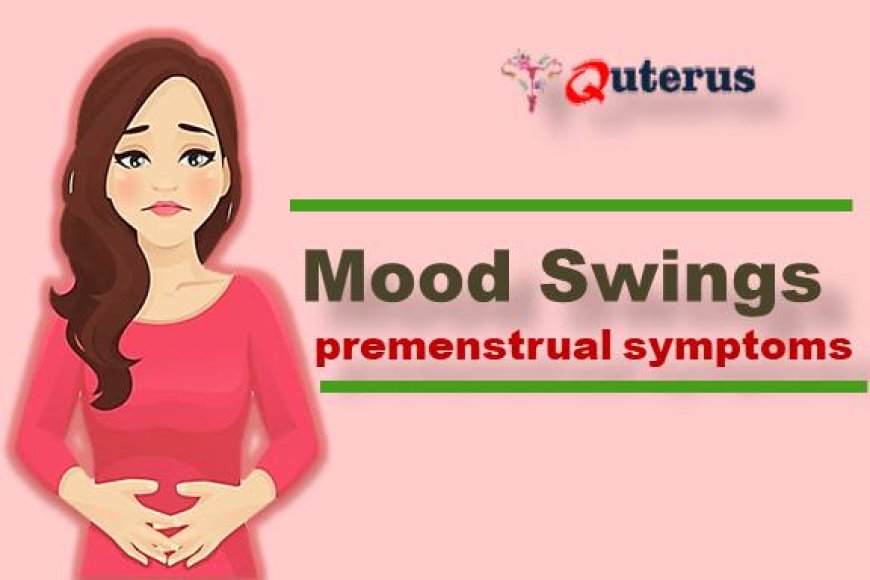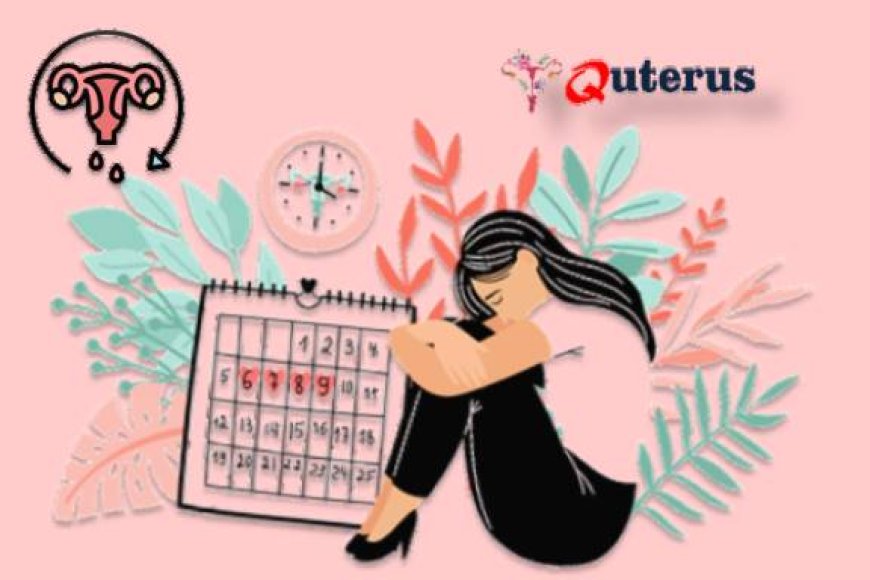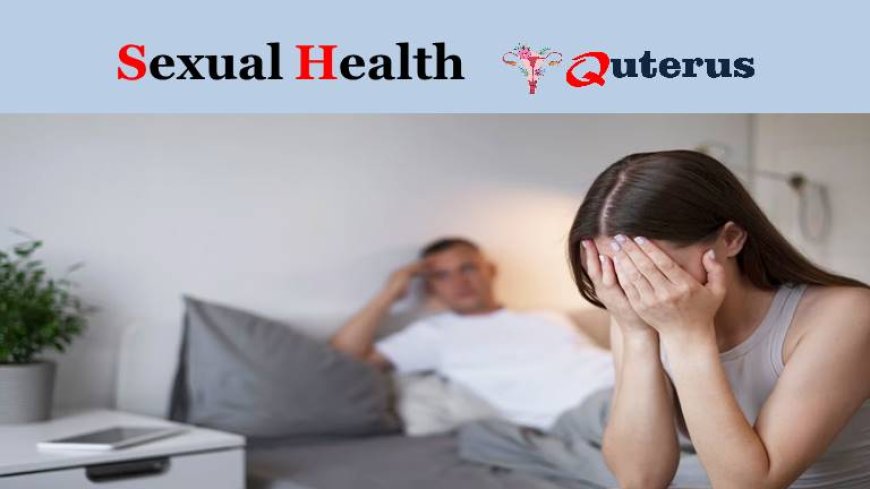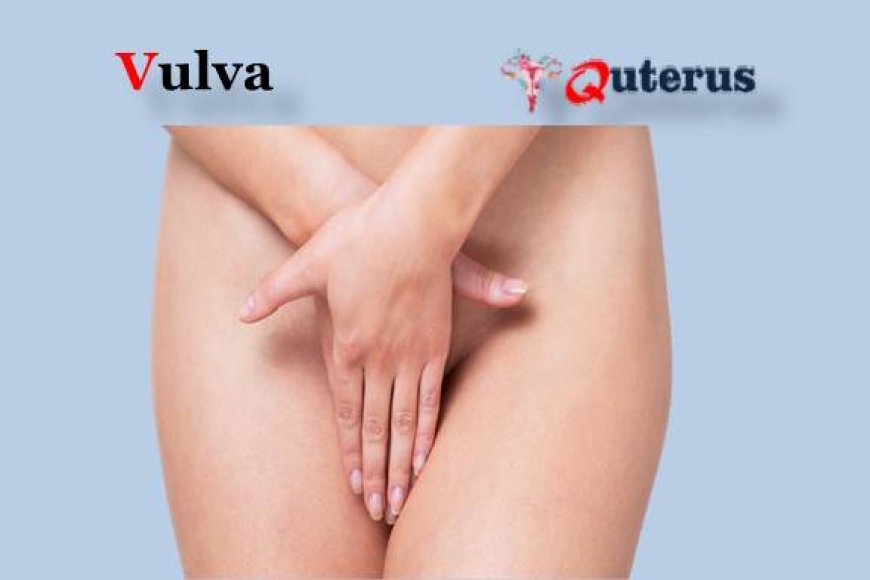What changes in mood swings lead to premenstrual symptoms?
Mood swings, including irritability and depression, are common symptoms of premenstrual syndrome (PMS) that women may experience in the days leading up to their period.

What are the changes in Mood swings in premenstrual symptoms?
Mood swings, including irritability and depression, are common symptoms of premenstrual syndrome (PMS) that women may experience in the days leading up to their period. Hormonal changes during the menstrual cycle can affect the levels of neurotransmitters like serotonin and dopamine, which may contribute to changes in mood.
Some women may experience anxiety, anger, sadness, or irritability, and the severity of these mood swings varies from person to person. Mood swings may negatively impact a person's work and relationships, and may also cause difficulty in daily activities.

To alleviate mood swings during PMS, women can try the following:
1. Engage in regular exercise, which can have a positive impact on mood and reduce stress levels.
2 Adopt stress management techniques such as meditation, yoga, or deep breathing exercises to manage anxiety and irritability.
3 . Cognitive- behavioral therapy (CBT) in conjunction with medication can be a useful tool in managing mood symptoms.
4 . Herbal preparations such as chamomile, passionflower, or valerian root may help reduce anxiety and promote relaxation.
5. Regular sleep routines and adequate sleep can help fight mood volatility.
If mood swings during PMS are severe or persist, women should consult their healthcare provider for proper diagnosis and management. The healthcare provider may suggest lifestyle modifications, hormonal treatments, or prescription medications for managing mood disorders. Women with underlying mood disorders such as depression and anxiety should continue to take any existing prescribed medication and consult with their healthcare provider to ensure that PMS management does not affect their pre-existing treatment plan.

Learn from the video also Mood swings in premenstrual symptoms
Understanding Facts About 'PMS' And 'Mood Swings' | Hear From A Doctor | Period Care
Depressed, anxious or suicidal before your period? You could be living with PMDD
Mood Swings During Period: Causes & Management | Period Mood Swings
How to manage mood swings in women?
What you need to know about your Periods | PMS Explained

Frequently Asked Questions
How do you stop PMS mood swings?
PMS mood swings can be challenging to manage, but the following strategies may help reduce their severity:
1. Exercise regularly: Physical activity helps release feel-good chemicals in the brain, promoting relaxation, and reducing stress. Exercise also reduces inflammation and helps regulate hormones, which can ease PMS symptoms.
2. Eat a balanced diet: Eating well-balanced meals rich in complex carbohydrates, protein, and healthy fats, and avoiding caffeine, alcohol, and sugary foods help stabilize blood sugar levels, reduce inflammation, and regulate mood swings.
3. Get enough sleep: Getting enough quality sleep can reduce stress, anxiety, and irritability, which are common symptoms of PMS mood swings.
4. Practice relaxation techniques: Techniques such as breathing exercises, yoga, meditation, or massage can help promote relaxation, reduce stress, and alleviate mood swings.
5. Consider therapy or counseling: Cognitive-behavioral therapy (CBT) and other forms of counseling can help women learn coping mechanisms and strategies for managing stress and anxiety, which can help reduce the severity of mood swings.
If PMS mood swings are severe and interfere with daily activities and relationships, it is essential to consult with a healthcare provider for further evaluation and management.
How many days before period do you get mood swings?
The timing of PMS mood swings can vary from woman to woman, but they typically occur in the week or two leading up to the onset of menstruation. This period is known as the luteal phase, which begins after ovulation and lasts until the start of the next menstrual cycle. PMS mood swings are a normal part of the menstrual cycle, and they can begin as early as one to two weeks before the start of your period. Women with premenstrual dysphoric disorder (PMDD), a severe form of PMS, may experience mood swings that are more severe and occur earlier in the menstrual cycle.

Why do I get so emotional before my period?
Fluctuations in hormone levels are the primary cause of emotional changes before the period. Estrogen and progesterone are two hormones linked to menstrual cycles that can impact mood swings. As a woman enters luteal phase of the menstrual cycle, progesterone levels increase, which can lead to premenstrual syndrome (PMS) characterized by mood swings, irritability, and anxiety. These hormonal fluctuations can also affect the chemical signaling in the brain, which can lead to emotional changes. Other factors like lifestyle, stress, and underlying mental health conditions can also worsen emotional changes before the period. Though emotional changes before the period are common in most women, it is essential to consult with a healthcare provider when these emotions are severe or significantly interfere with daily life.
How to treat PMS mood swings naturally?
PMS mood swings can be treated naturally with the following remedies:
1. Exercise regularly: Exercise releases endorphins, which are natural mood-boosting chemicals. Regular exercise can also reduce stress and anxiety, which can cause mood swings.
2. Get enough sleep: Getting at least 7-8 hours of sleep each night can reduce stress levels and regulate mood.
3. Eat a balanced diet: Eating a balanced diet rich in fruits, vegetables, whole grains, and lean proteins can help regulate blood sugar and hormone levels, reducing mood swings.
4. Try supplements: Taking supplements, such as magnesium, Vitamin B6, and evening primrose oil, can help reduce mood swings.
5. Practice relaxation techniques: Relaxation techniques like meditation, yoga, deep breathing, or massage can help reduce stress and promote relaxation, which can, in turn, alleviate mood swings.
6. Herbal remedies: Herbal remedies like chamomile tea, valerian root and St. John's Wort are thought to help reduce PMS symptoms, including mood swings.
If natural remedies do not alleviate the mood swings, it is essential to consult with a healthcare provider, who can evaluate for underlying conditions and offer treatment recommendations.
What hormone causes PMS mood swings?
P (premenstrual syndrome) mood swings are primarily caused by changes in the hormone levels, specifically estrogen and progesterone. These two hormones fluctuate throughout a woman's menstrual cycle, with progesterone levels increasing during the second half of the cycle (luteal phase) after ovulation. Progesterone is known to have a calming effect on the brain, but it can also cause irritability, mood swings, and anxiety when the levels are too high. Decreased levels of estrogen during the menstrual cycle can also lead to mood changes in some women. Imbalances in these hormones can lead to emotional and physical symptoms of PMS, including mood swings, anxiety, fatigue, bloating, and headaches. Natural remedies, such as exercise, healthy diet, stress reduction techniques, and supplements, may help improve hormonal balance and reduce the severity of PMS mood swings. If mood swings are severe or interfere with daily activities, a healthcare provider should be consulted for further evaluation and management.

What is the best natural remedy for PMS?
The best natural remedies for PMS may vary depending on the individual and the severity of symptoms. However, the following remedies have shown to be helpful in reducing PMS symptoms:
1. Exercise: Regular exercise can help reduce stress and release endorphins, which are natural mood-boosting chemicals.
2. Magnesium supplements: Magnesium has natural calming effects and can help reduce symptoms like irritability, anxiety, and mood swings.
3. Vitamin B6: Vitamin B6 can regulate hormonal imbalances and reduce the severity of PMS symptoms, including mood swings.
4. Herbal remedies: Chamomile, ginger, and evening primrose oil have all shown beneficial effects in reducing PMS symptoms, including mood swings.
5. Balanced diet: Eating a balanced diet rich in fruits, vegetables, and whole grains can help regulate hormonal imbalances and reduce PMS symptoms.
6. Stress reduction: Techniques like meditation, yoga, deep breathing, or massage can help reduce stress and promote relaxation, which can alleviate PMS symptoms.
It is important to consult with a healthcare provider before taking any supplements or herbal remedies, especially if you have any underlying medical conditions or are taking any medications.
How can I calm my anxiety during PMS?
Anxiety during PMS can be challenging to manage, but the following strategies may help to calm it:
1. Exercise regularly: Physical activity helps release endorphins, which are natural mood-boosting chemicals that can help reduce anxiety.
2. Get enough sleep: Getting adequate quality sleep can reduce stress levels and promote relaxation, which can help alleviate anxiety.
3. Eat a balanced diet: Avoiding caffeine and sugar and eating a balanced diet rich in fruits, vegetables, and whole grains can help regulate blood sugar and reduce anxiety.
4. Relaxation techniques: Techniques such as deep breathing, yoga, meditation, or massage can help promote relaxation, reduce tension, and alleviate anxiety symptoms.
5. Consider therapy or counseling: Cognitive-behavioral therapy (CBT) and other forms of counseling can help women learn coping mechanisms and strategies for managing stress and anxiety, which can help reduce symptoms of anxiety during PMS.
If anxiety symptoms are severe and interfere with daily activities and relationships, it is essential to consult with a healthcare provider for further evaluation and management. In some cases, medication or other treatments may be necessary to help alleviate anxiety during PMS.

How to control PMS in Ayurveda?
Ayurveda offers various remedies to help control PMS, and some of the effective ones are mentioned below:
1. Herbal remedies: Ayurvedic herbs like ashwagandha, shatavari, brahmi, and tulsi can help regulate hormonal imbalances and reduce PMS symptoms like mood swings, irritability and anxiety.
2. Ayurvedic massage: A gentle, warm oil massage can help improve blood flow and promote relaxation, reducing stress and addressing PMS symptoms.
3. Diet changes: Eating a balanced, nutritious, and warm diet can help regulate digestion and hormone levels and address PMS symptoms. Drinking warm milk with honey and turmeric can also be helpful, primarily when taken before bed.
4. Yoga and meditation: Ayurvedic practices like yoga asanas and breathing exercises, such as Pranayama techniques, can help reduce stress, regulate hormones, and improve overall well-being.
5. Ayurvedic remedies: Ayurvedic remedies like churnas (powders), vati (tablets), and ghee (clarified butter) are commonly recommended to address PMS symptoms.
However, it is crucial to consult with an Ayurvedic practitioner or healthcare provider before trying any Ayurvedic remedies, especially if you have underlying medical conditions, are pregnant, or are taking any medications. Additionally, while Ayurvedic remedies can be helpful, they may not be effective for all women, and it is essential to speak to a healthcare provider for a comprehensive evaluation and treatment plan.
When is PMS anxiety the worst?
PMS anxiety can peak in severity during the week or two leading up to the onset of menstruation, which is known as the luteal phase of the menstrual cycle. Hormonal fluctuations during this phase can lead to mood changes, including anxiety. Some women may also experience anxiety symptoms in the initial days of their period or during ovulation. The severity of PMS anxiety varies from woman to woman, and certain lifestyle factors, such as diet, exercise, and stress levels, may also play a role. It is essential to track your PMS symptoms and speak to a healthcare provider if you experience severe and disruptive anxiety symptoms. They can evaluate for underlying medical conditions and provide appropriate treatment and management recommendations.

We provide you with authentic, trustworthy and revelant information

Have issue with the content?
 Disclaimer
Disclaimer
The information given on our website www.uterusq.com is being posted only for the purpose of knowledge and information, before using them, choose them completely and check the correctness with your subject matter expert. We (www.uterusq.com) have no responsibility for any kind of loss.







